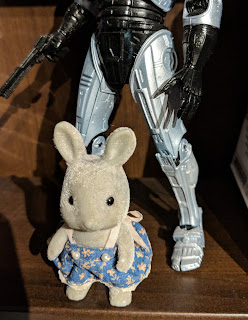I am Spock
I Am Spock
Leonard Nimoy, 1995
Reading this book has caused me to think a bit about my own perspective. I wonder what it's like to read a book like this, an actor's memoir, and not have a background in the performing arts. Does it help people understand what it's like to work in the industry, or do they come away from the book thinking they understand, but with the wrong messages?
I do come at this book with a background in performing arts, and am familiar with actors of many types, so what I get from this book, especially when combined with Beyond Uhura (reviewed here), is a plausible portrait of actors who seem an awful lot like actors I've known.
A great deal of the book is concerned in assuring the reader that Nimoy really does love Spock, and that the title of his earlier memoir (I Am Not Spock) was never intended to convey animosity. From skimming excerpts of that book online, I would say that he is not exaggerating. The earlier book has the same respect and enjoyment about the Vulcan that comes through here.
Nimoy's very devotion to the character is what created some of the tension on the set reported by Nichols. Comparing and contrasting the books was really interesting. It's an example of how people can be in the same room and at the same time on different worlds. Neither one is “right” or “wrong”, but how different actors approach a job, what opportunities they have to take control of a role, or not, and the vagaries of fans combine to create vastly different working experiences.
Some of this difference is in the system. Nimoy relates an interchange with the producers in which they refuse to provide his assistant with pencils for responding to fan mail. Nichols relates a conversation when a mail-room worker comes secretly to tell her that the higher-ups told them not to send her most of her fan mail, but if she comes down to the mail room, they'd be glad to pass it on. It isn't like the two actors are starting on the same playing field.
Some of it, however, is just in style. Some actors seize control of roles, of situations, and I understand why they feel they have to do that, and sometimes it is a great thing to do for the piece. Some prefer to work with an ensemble, building a team-based dynamic. Often actors don't even realize which way they're behaving at any given time, so I'm not sure whether Nimoy doesn't mention the occasional tension within the cast out of courtesy toward his co-stars, or whether he was simply unconscious of it.
This book is also interesting for containing a rather exhausting litany of how each piece of Spock and Vulcan was developed, and by who. There are also some interesting historical notes here. Nimoy films a mini-series in Bejing in 1981 and travels to the USSR in 1984 for a screening of Star Trek IV, and has perceptive observations in each case.
I respect Nimoy for his work, and it was a highly entertaining book: well written, clever, sweet. There was a slight sense of self-congratulation here and there, but it more often seems like remembering the best of things than a conscious re-writing of history.
4 Stars – A Very Good Book




Comments
Post a Comment
FYI: Most comments are moderated, and will not appear immediately.